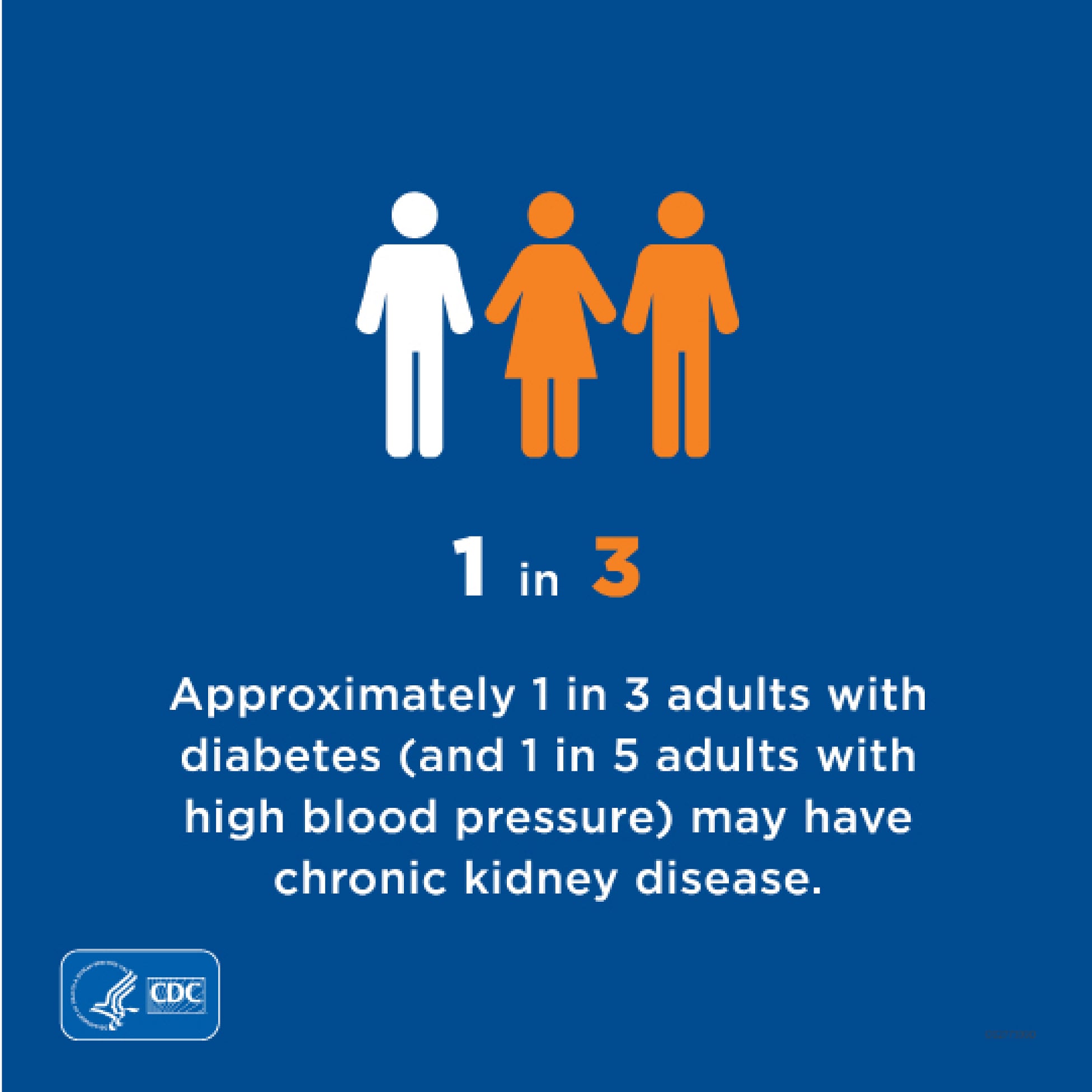Diabetes and Chronic Kidney Disease

If you have diabetes, ask your doctor about kidney disease.
Chronic kidney disease (CKD) often develops slowly and with few symptoms. Many people don’t realize they have CKD until it’s advanced and they need dialysis (a treatment that filters the blood) or a kidney transplant to survive.
If you have diabetes, get your kidneys checked regularly, which is done by your doctor with simple blood and urine tests. Regular testing is your best chance for identifying CKD early if you do develop it. Early treatment is most effective and can help prevent additional health problems.
CKD is common in people with diabetes. Approximately 1 in 3 adults with diabetes has CKD. Both type 1 and type 2 diabetes can cause kidney disease.
- Kidney diseases are the 9th leading cause of death in the United States.
- Approximately 1 in 3 adults with diabetes has CKD.
- Every 24 hours, 170 people with diabetes begin treatment for kidney failure.
How Diabetes Causes Kidney Disease
Each kidney is made up of millions of tiny filters called nephrons. Over time, high blood sugar from diabetes can damage blood vessels in the kidneys as well as nephrons so they don’t work as well as they should. Many people with diabetes also develop high blood pressure, which can damage kidneys too.
CKD takes a long time to develop and usually doesn’t have any signs or symptoms in the early stages. You won’t know you have CKD unless your doctor checks you for it.
Tips To Keep Your Kidneys Healthy
You can help keep your kidneys healthy by managing your blood sugar, blood pressure, and cholesterol levels. This is also very important for your heart and blood vessels—high blood sugar, blood pressure, and cholesterol levels are all risk factors for heart disease and stroke.

Physical activity can help
prevent kidney disease.
- Keep your blood sugar levels in your target range as much as possible.
- Get an A1C test at least twice a year, more often if your medicine changes or if you have other health conditions. Talk to your doctor about how often is right for you.
- Check your blood pressure regularly and keep it below 140/90 mm/Hg (or the target your doctor sets). Talk to your doctor about medicines and other ways to lower your blood pressure.
- Stay in your target cholesterol range.
- Eat foods lower in sodium.
- Eat more fruits and vegetables.
- Be physically active.
- Take your medicines as directed.
Prediabetes and Kidney Disease
If you have prediabetes, taking action to prevent type 2 diabetes is an important step in preventing kidney disease. Studies have shown that overweight people at higher risk for type 2 diabetes can prevent or delay developing it by losing 5% to 7% of their body weight, or 10 to 14 pounds for a 200-pound person. You can do that by eating healthier and getting 150 minutes of physical activity each week. CDC’s National Diabetes Prevention Program lifestyle change program can help you create the healthy lifestyle habits needed to prevent type 2 diabetes. Find a program in your community or online.